
In Korea, one can do anything and everything within the “Kakao Empire.” One can send messages to friends, buy emoticons or a pack of chips, get updates on new mobile games, manage bank accounts, and call a taxi, among many other things. This may sound great, but there is always a threat of losing all such services at once.
Such an outcome, feared by everybody, happened on Saturday, October 15. A fire broke out at SK C&C’s Pangyo data center, which manages data for Kakao, Naver, and other key platform operators, as well as SK telecom. The fire crippled many Kakao and Naver services.
Many Koreans use Kakao Pay for their daily transactions. Several stores accept Kakao Pay as a payment method, most of the taxis run on Kakao T or Kakao Maps, and friends, companies, and even the Korean government use Kakao Talk to communicate. Therefore, when the fire broke out, life in Korea came to a halt. It was a massive shock to everyone who expects a tech giant like Kakao to maintain a consistent online presence.
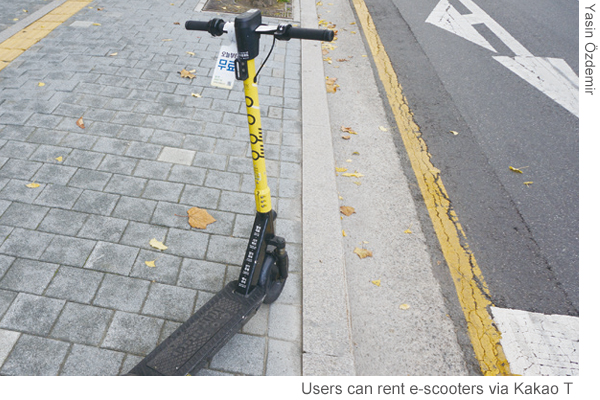
Kakao Talk was merely an instant messaging application when it debuted in March 2010. In less than a year, Kakao Talk gained 10 million users, and by 2017, it had garnered more than 42 million users in Korea, accounting for 97 percent of the entire smartphone user population.
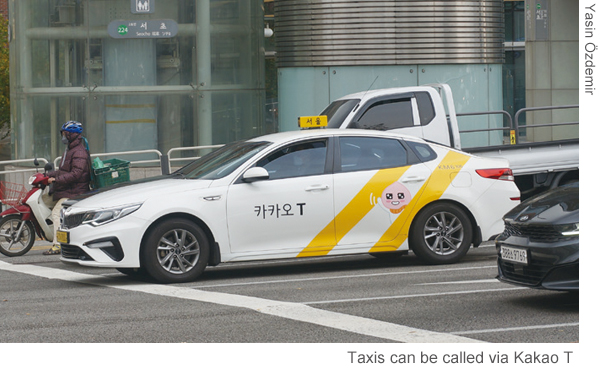
As the number of users explosively increased, Kakao expanded its service to a broader range. It launched features such as gifting virtual, physical goods through Kakao Talk and Kakao Story, which made Kakao a go to social network service in Korean market a social network service. It also added services like Kakao Game, Kakao T, Kakao Stock, and Melon. All gained huge, immediate success, increasing Kakao’s influence over the daily lives of Koreans.
In 2017, Kakao was also officially approved by the regulators to become Korea’s first online-only bank. The bank engages in the same business as all other commercial banks, including processing deposits, loans, and transactions. Kakao Bank attracted thousands of customers immediately: 820,000 within four days of its launch and 3.5 million customers after a month. By September 26, 2017, Kakao Bank had lent 1.4 trillion KRW (1.2 billion USD), constituting 40 percent of the total loans in all of South Korea for that particular month, thus expanding the Kakao Empire.
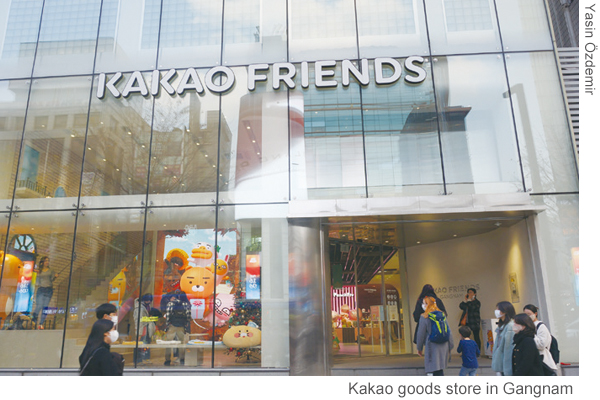
By entering the Korean telecommunication market earlier than its competitors, Kakao had a preemption advantage that allowed it to dominate the market. Making many of its services free was also critical for Kakao’s expansion. However, the biggest advantage Kakao offered was the Kakao Empire itself.
By letting customers easily do everything and anything within their services, more and more people have become addicted to their convenience. Kakao Talk allows customers to check emails and calendars, buy concert tickets, read news, and text friends through only one app. Instead of downloading and doing all of these daily tasks through different services and apps, most people choose convenience and get addicted to Kakao Empire.
The more users an online platform has, the greater the benefit for all users. As a result, users tend to gravitate toward a single platform, eventually leading to a monopoly over the market.

Kakao has no plans to slow down. According to the numbers provided by the Korea Fair Trade Commission (KFTC), Kakao only had 26 affiliates under its umbrella in 2014 but increased them to 134 by August 2022. Regarding market capitalization, Kakao is now the biggest business conglomerate with no presence in the manufacturing sector in South Korea. By the end of 2021, it was also the fifth largest company by market capitalization, following Samsung, SK, LG, and Hyundai Motor.
However, if Kakao has provided most of its services for free, how come it is profitable, and how did it become an empire?
Kakao has been adopting a business tactic of initially providing fee-free services and collecting high fees once it monopolizes the market. For instance, after 80 percent of taxi drivers joined Kakao Taxi, Kakao attempted to raise the basic fare for taxi services from 3,800 KRW to 8,800 KRW but failed. In addition, it withdrew its plan to increase rental fees for bikes.
Kakao has infiltrated areas run mainly by small businesses such as chauffeur services, beauty parlors, manicure shops, golf driving ranges, English education, flower delivery, and express delivery. For instance, numerous taxi call service providers were forced out of business after Kakao entered the market. Owners of beauty shops also complain that they pay a commission equivalent to 25 percent of their revenues to Kakao.
The Korean government and legislature have failed to strengthen fair competition among online platforms. In September 2020, the Fair Trade Commission proposed a regulation, but it has not been activated due to conflicts over command among government offices, protests from big platform operators, and neglect from the legislature. However, after the fire incident, political parties are raising their voices against the tech giants.
Park Hong-geun, floor leader of the main opposition Democratic Party of Korea (DPK), stated that “The point of this crisis was that the business did not have appropriate backup systems in order to cut costs,” accusing Kakao of failing to “think about responsibilities while maintaining the market dominant position.”
The ruling People Power Party (PPP) also blamed Kakao. The PPP floor leader Joo Ho-young stated, “Despite expanding its business based on the messaging service, with 134 affiliates in operation as of August, the company did not have any preventive measures.”
Joo urged the parliament to look into a revised bill proposal to designate data centers as state disaster management facilities. Companies had protested against the bill, calling it excessive regulation.
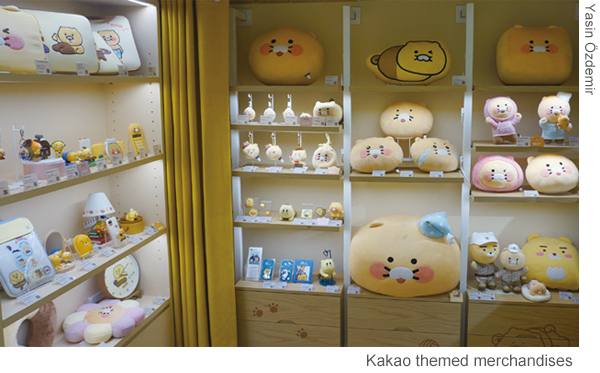
The proposal requires businesses to report to the government if a disaster or service disruption occurs at their data centers. The government can conduct an on-site probe of the respective incident and issue a fine of up to 3 percent of the affected company’s revenue if it is found to have breached the regulation.
Mr. Joo said the party would hold a policy consultation meeting with the Ministry of Science and ICT and look into views warning against the company’s excessive market domination.
Due to the fire incident, many users feel betrayed by Kakao since they believed that the company which dominates the market would offer reliable and readily available services. An analysis services provider stated that the number of LINE users, operated by another local IT giant Naver, spiked to 1.28 million on Sunday, nearly tripling from 430,000 on Saturday. Telegram’s user numbers also surged to 1.28 million, up from 1.06 million.
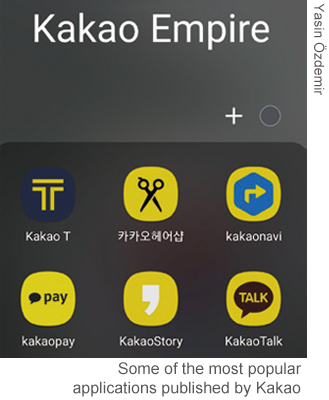
Kakao announced in their third financial quarter that they expect to suffer 22 billion KRW in the fourth quarter of 2022 due to the incident and the economic slowdown. Kakao’s co-CEO Namkoong Whon announced his resignation to take responsibility. Kakao also announced that the company plans to invest 460 billion KRW to build its own data center in 2023, aiming to complete it by 2024.
There is a Turkish proverb that goes, “sütten ağzı yanan yoğurdu üfleyerek yer,” which translates as “the one who burns his tongue while drinking milk eats the yogurt by blowing it.” It means those whose behavior costs them dearly will be cautious while facing similar situations in the future. Looking at Kakao’s announcements regarding the fire incident, Kakao will definitely eat their yogurt by blowing it in the future.
Yasin Özdemir
yasinozdemir@uos.ac.kr

